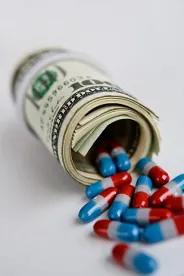In December, Teva Pharmaceutical Industries LTD. (Teva) agreed to pay penalties of over $519 million for violating the Foreign Corrupt Practices Act (FCPA). Teva is the world’s largest manufacturer of generic pharmaceutical goods. It entered the agreements to resolve criminal charges brought by the Department of Justice (DOJ) and related proceedings with the U.S. Securities and Exchange Commission (SEC) in connection with schemes involving bribes paid to government officials in Russia, Ukraine, and Mexico.
According to a DOJ press release, Teva executives admitted it paid millions of dollars in bribes to a high-ranking Russian government official to increase the sales of Teva’s multiple-sclerosis drug, Copaxone.
In Ukraine, government officials were bribed with monetary payments to influence Ukraine’s approval of Teva’s drug registrations, allowing the company to market and sell its products in the country.
Teva entered a deferred prosecution agreement with the DOJ in which it agreed to pay a total criminal penalty of $283 million. Teva also agreed to continue to cooperate with the department’s investigation, enhance its compliance program, implement rigorous internal controls, and retain an independent corporate compliance monitor for a term of three years.
The Securities and Exchange Commission (SEC) filed a separate order against Teva, charging Teva with $236 million more in violation of the anti-bribery provisions of the FCPA. The SEC’s complaint against Teva alleged the company made over $214 million in profits through its bribery scheme.
The FCPA allows for whistleblowers to receive an award of between 10 and 30 percent of the total amount recovered by the government if a successful enforcement action follows their disclosures. The FCPA has transnational application, meaning foreign nationals can file their whistleblower claims anonymously in the United States.
Whistleblowers can anonymously file claims of violations of the FCPA with the SEC, including bribery, money laundering, tax evasion, corruption, and fraud, and may be eligible for financial rewards.
Ben Kostyack contributed to this article




 />i
/>i

